The Fascinating Nature Of Asteroid Kleopatra

Introduction
Asteroids are captivating celestial objects that have fascinated scientists and astronomers for centuries. One such asteroid that has attracted a great deal of attention is Kleopatra. Known for its unique shape and composition, Kleopatra offers valuable insights into the nature and history of asteroids. In this article, we will delve into the mythology, history, and cultural significance of Kleopatra, exploring the various aspects that make it truly fascinating.
The Discovery of Kleopatra
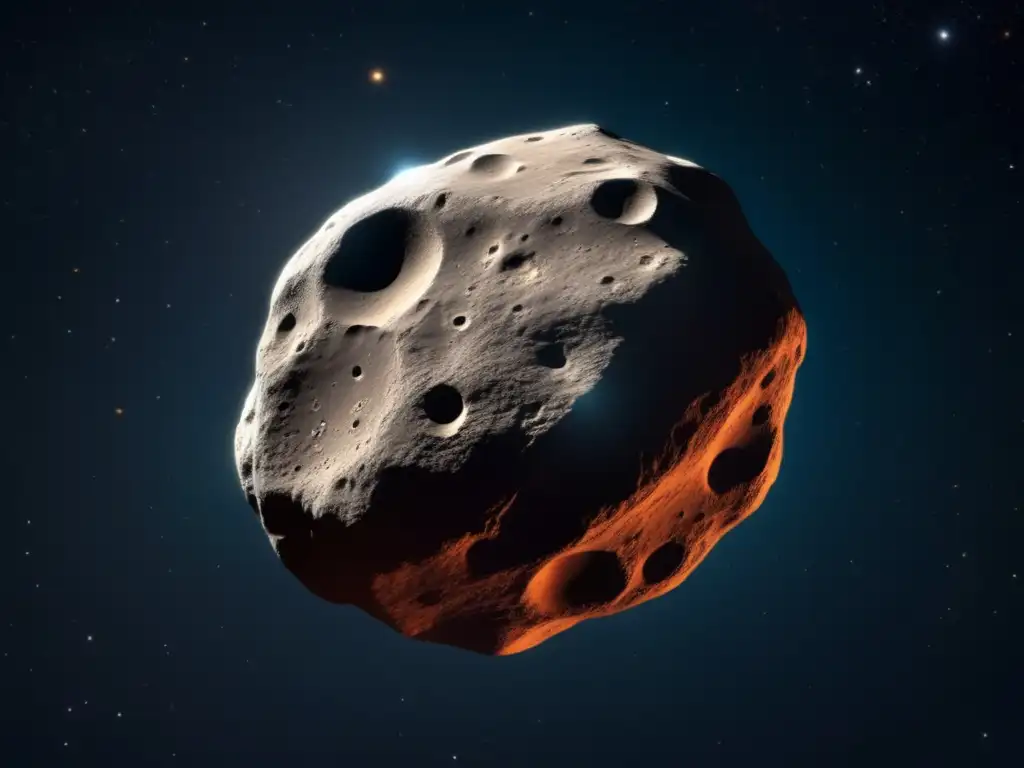
Discovery and Naming
Kleopatra was discovered on October 10, 1880, by astronomer Johann Palisa at the Austrian Naval Observatory in Pola. It was named after the famous Egyptian queen Cleopatra due to its elongated shape, reminiscent of her legendary profile. The naming of asteroids often draws inspiration from historical figures, mythology, or notable events.
Physical Characteristics
Kleopatra is classified as a metallic asteroid and belongs to the rare M-type group. It has an elongated shape, with dimensions of approximately 217 kilometers by 94 kilometers by 81 kilometers. The most striking feature of Kleopatra is its twin lobes, giving it a distinctive dumbbell-like appearance. This unusual shape has led to numerous scientific studies to understand its origin and formation.
Composition and Surface Features
Studies have revealed that Kleopatra consists mainly of metal, predominantly nickel and iron, which is typical of M-type asteroids. Spectroscopic analysis has also shown the presence of olivine and pyroxene minerals on its surface. These findings provide valuable insights into the composition and evolution of asteroids in our solar system.
Scientific Significance of Kleopatra
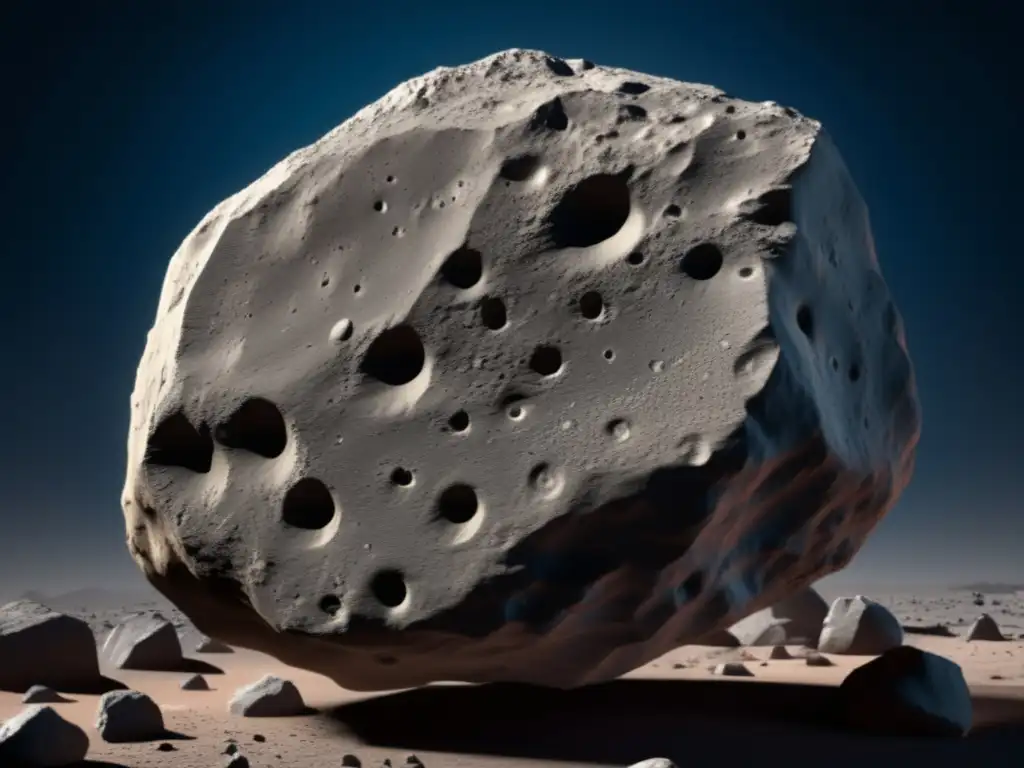
Origin and Formation Theories
The unique shape of Kleopatra has sparked various theories about its origin and formation. One hypothesis suggests that it is the result of a collision between two separate bodies, which merged together due to their mutual gravitational attraction. Another theory proposes that Kleopatra underwent a process known as "spin-up," where centrifugal forces caused it to stretch into its current shape. Further investigations and simulations are ongoing to determine the most plausible explanation.
Implications for Asteroid Interiors
Kleopatra's unusual shape provides valuable insights into the internal structure and composition of asteroids. By studying its mass distribution and gravitational effects on orbiting moonlets, scientists can gain a better understanding of the density distribution and potential presence of voids within asteroids. This knowledge has implications not only for asteroids but also for other rocky objects within our solar system.
Possible Mining Opportunities
The composition of Kleopatra, rich in valuable metals such as nickel and iron, has sparked interest in potential mining opportunities on asteroids. As space exploration technology advances, the possibility of extracting resources from asteroids becomes increasingly viable. Studying asteroids like Kleopatra helps scientists assess the economic viability and technical challenges associated with asteroid mining.
Cultural and Mythological Significance
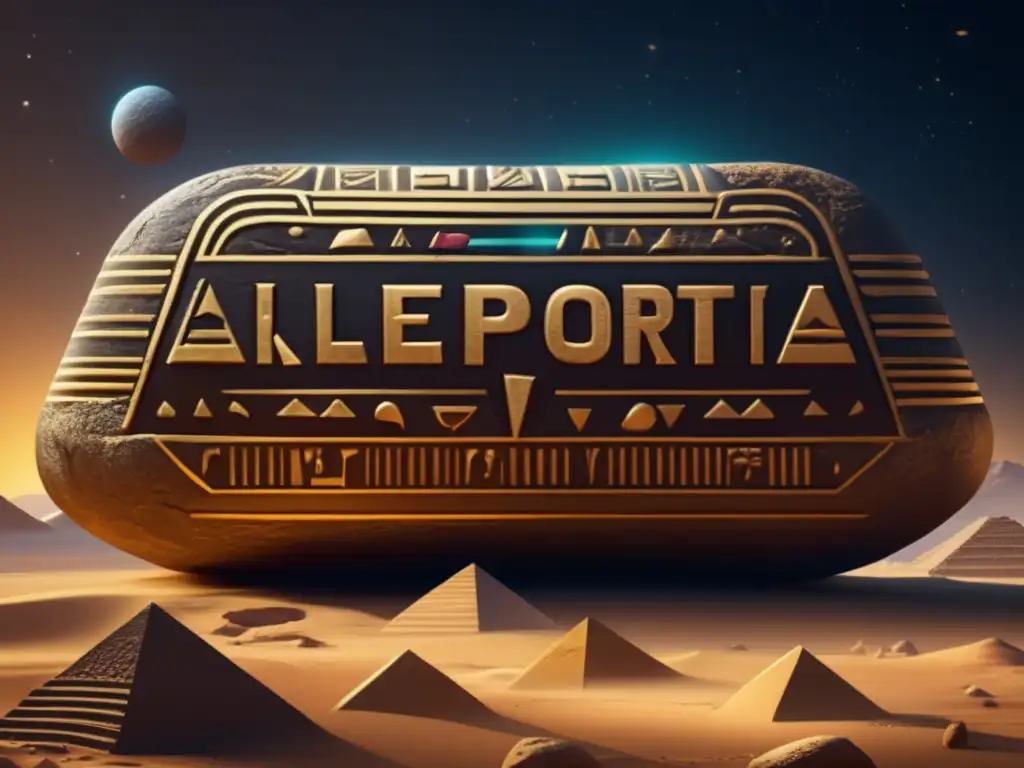
Impact on Ancient Beliefs
Asteroids have long been associated with mythology and cultural beliefs. In ancient times, these celestial objects were often considered divine or omens of significant events. The unique shape and characteristics of Kleopatra likely would have held special significance to cultures that believed in celestial symbolism and interpreted such shapes as messages from the gods.
Inspiration for Art and Literature
The intriguing nature of Kleopatra has inspired artists, writers, and filmmakers to depict asteroids in their works. From science fiction novels to space-themed paintings, the iconic shape of Kleopatra has become a symbol of the mystique and fascination surrounding asteroids. Its representation in popular culture further highlights its significance and impact on human creativity.
Modern Cultural References
In modern times, Kleopatra continues to capture the imagination of people worldwide. Its unique shape and composition have made it a subject of interest for space enthusiasts, astronomers, and researchers. The study of Kleopatra contributes to our overall understanding of asteroids and the dynamic nature of our universe.
Frequently Asked Questions
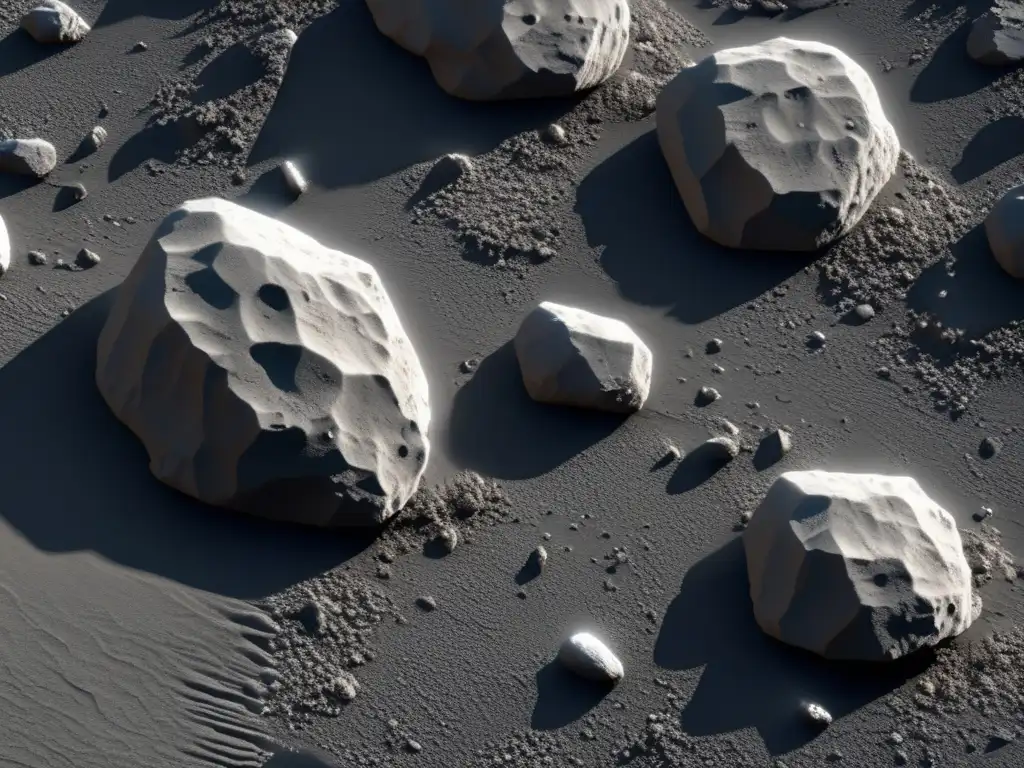
-
What is the significance of Kleopatra's shape?
Kleopatra's distinctive dumbbell-like shape provides insights into its formation and internal structure.
-
Why was Kleopatra named after Cleopatra?
Kleopatra's elongated shape resembles the legendary profile of Queen Cleopatra, leading to its name.
-
What are the potential implications of studying Kleopatra?
Studying Kleopatra helps advance our knowledge of asteroid origins, internal structures, and potential mining opportunities.
-
How does Kleopatra inspire artistic and cultural works?
Kleopatra's unique shape has served as inspiration for art, literature, and popular culture references related to asteroids.
-
What is the future significance of studying asteroids like Kleopatra?
Studying asteroids like Kleopatra contributes to our understanding of the solar system, potential resource extraction, and future space exploration.
Conclusion
Kleopatra is a truly fascinating asteroid that offers valuable insights into the world of asteroids. Its unique shape, composition, and cultural significance make it an object of scientific and artistic interest. By studying Kleopatra, scientists are unlocking the mysteries of our universe, uncovering the secrets of asteroid formation and potentially paving the way for future space exploration and resource extraction. The captivating nature of Kleopatra serves as a reminder of the vast wonders that await us beyond Earth's boundaries.
Share your thoughts and discoveries about asteroids in the comments section below. Don't forget to subscribe to Asteroid Realm for more fascinating articles. Help us spread the knowledge by sharing this article on social networks. Thank you for your time and attention.
Additional Resources
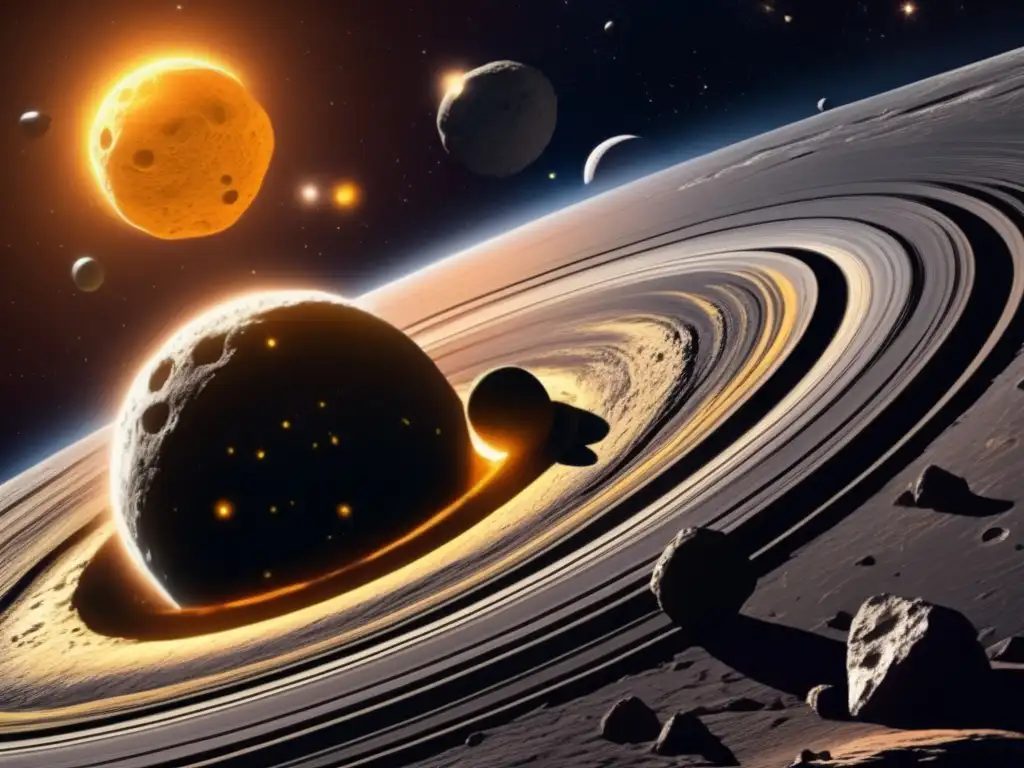
For further reading on asteroids and related topics, check out the following resources:
- 1. NASA's Asteroid Redirect Mission - https://www.nasa.gov/mission_pages/asteroids/initiative/index.html
- 2. The Planetary Society - Asteroids - https://www.planetary.org/our-work/projects/neo/
- 3. International Astronomical Union - Minor Planet Center - https://www.minorplanetcenter.net/
- 4. The Asteroid Society - https://www.asteroidsociety.org/
- 5. "Asteroid Mining: The Key to Human Survival in Space" - Book by John S. Lewis
 Asteroid Mnemosyne: A Journey Into Its Past
Asteroid Mnemosyne: A Journey Into Its Past Discovering The Story Of Asteroid Amphitrite
Discovering The Story Of Asteroid Amphitrite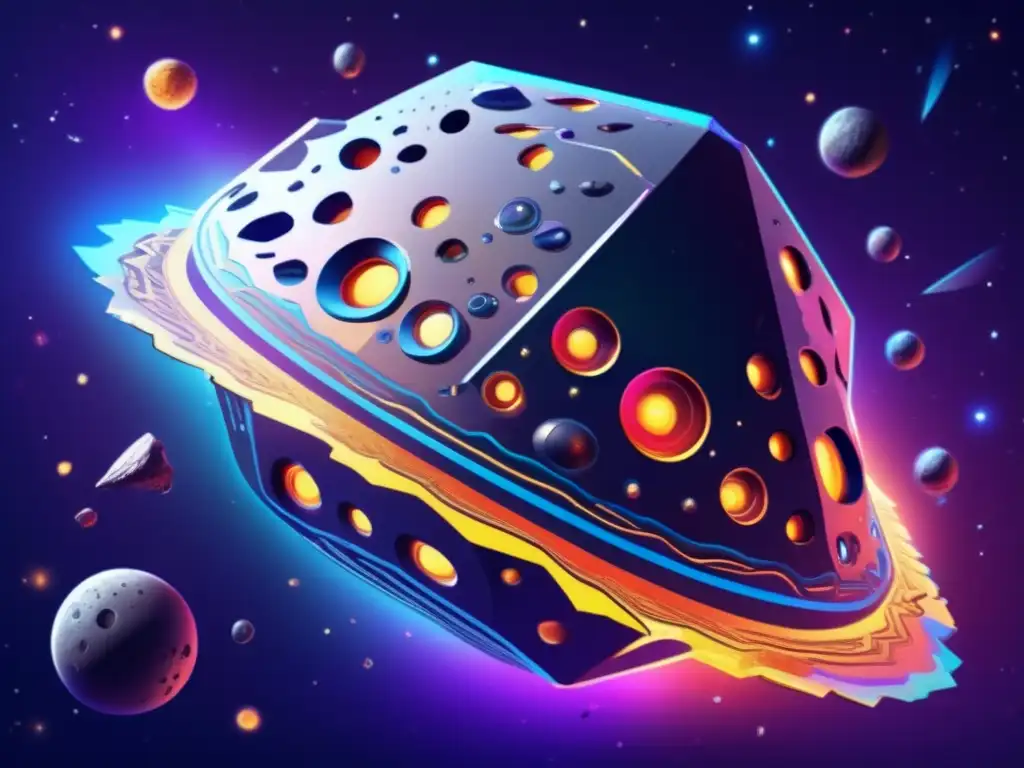 A Detailed Look At Asteroid Beatrix
A Detailed Look At Asteroid BeatrixIf you want to discover more articles similar to The Fascinating Nature Of Asteroid Kleopatra, you can visit the Asteroid Profiles category.
Leave a Reply

Articulos relacionados: